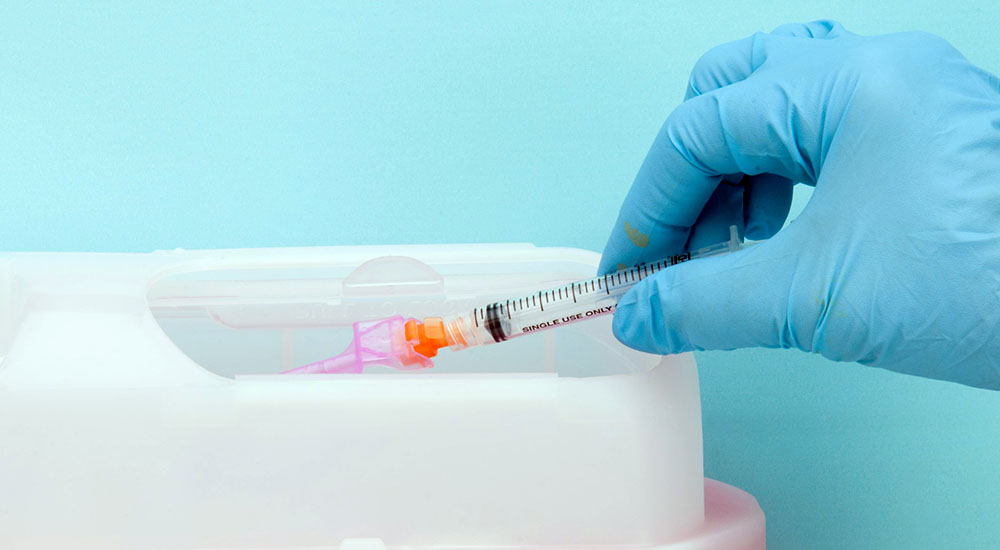West Virginia harm reduction workers are launching a new statewide coalition. “Mountain State Harm Reduction” will provide overdose prevention and HIV-related services to people who use drugs, a move that comes as a new law threatens the existence of the state’s syringe service programs (SSP).
Mountain State Harm Reduction will be based in Morgantown, West Virginia. On its September 25 launch, coalition members will distribute naloxone, syringe sharps containers and other harm reduction supplies at the Morgantown Farmers Market. They’ll also begin their fundraising drive. A representative told Filter by email the coalition includes about 4-5 different organizations and up to 16 people at the present.
The coalition has been meeting since June. In its first year, it will focus on direct services for drug users, lobbying lawmakers at all levels to support those services and holding strategy meetings across the state.
West Virginians, especially those who inject drugs, have been gripped by an historic HIV crisis. The state has been hit harder by opioid-involved overdose than any other.
State officials have been slow, or outright opposed, to implement safety measures in response. In 2015, Cabell County became the West Virginia county to open an authorized SSP, and several other counties and cities followed. But they have faced tremendous opposition from local and state lawmakers, as well as a number of residents. Officials have shut down programs in Charleston and Harrison County, and restricted activities for the Cabell County program.
The Centers for Disease Control and prevention demanded urgent action on the state’s HIV crisis, which is especially severe in Charleston capital Kanawha County. In response, Republican Senator Eric Tarr introduced a bill to drastically restrict SSP throughout the state.
Especially concerning is the new “one-to-one” rule.
Lawmakers framed the bill as a way “to help so many people and prevent infectious disease,” when what it does is in fact the opposite. It requires SSP to obtain a signed letter of approval from local elected officials and sheriffs, and demands they track every syringe given out with a unique serial number. It also created severe penalties for non-compliance.
Especially concerning is its “one-to-one” rule—an SSP can only give out one sterile syringe in exchange for a used syringe. This contradicts the scientific consensus on how to best reduce HIV and hepatitis C transmission: Programs should give everyone how ever many syringes they need.
Governor Jim Justice signed Bill 334 into law in April. Amid public outcry, the ACLU of West Virginia sued to stop the law—and temporarily succeeded when a court paused it from taking effect in June. But the court ultimately ruled against them just weeks later, allowing it to take effect.
In August, the CDC completed a month-long assessment of HIV and injection drug use in Kanawha County. The agency found a critical lack of access to sterile syringes, as well as to HIV testing and treatment. It recommended increasing access to these resources immediately.
On September 22, another West Virginia SSP was forced to shutter after the local health department was unable to meet the nearly 50 requirements needed for licensing.
“Under the new law, we can’t comply,” Mercer County Health Department Administrator Roger Topping said at the board of health meeting that day. The board voted to discontinue the program.
Updated 09/29/2021 to reflect estimate of the size of the coalition.
Photograph via US Department of Veterans Affairs




